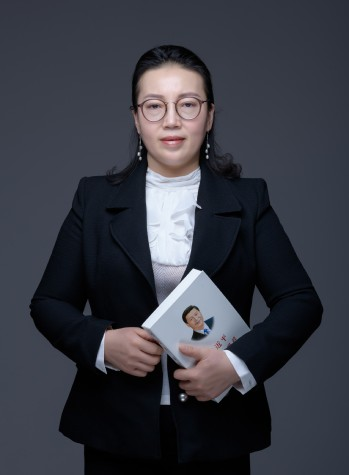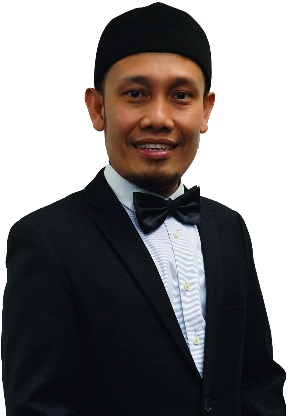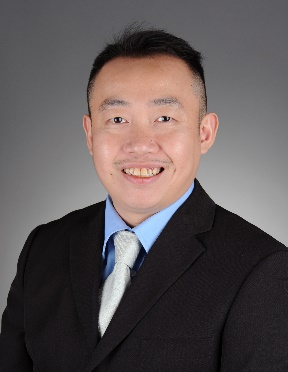
| Prof. Zhenjiao YangSchool of International Affairs and Public Administration, Ocean University of China, ChinaResearch Area: Marine Ecological Security, Ocean Governance and Public Policy Brief: Professor Yang received her Ph.D. inHistory from Shandong University. Her scholarly and teaching interests include Marine Ecological Security, Ocean Governanceand Public Policy. She currently teaches Contemporary Chinese Public Policy and Convention on the law of the sea and safeguarding maritime rights and interests. She leads in more than ten related projects funded by the Chinese government and the ministry of education. She has published more than20 articles in CSSCI journals such as Pacific Journal, Environmental Protection, etc. and has authored the Theory and Practice of Marine Ecological Security. Prof. Yang also has presided nearly 20 research projects at or above the marine issues Title of Keynote Speech: Research on synergistic governance of resource development and ecological protection in the Arctic under the perspective of green development Abstract: Synergistic governance of resource development and ecological protection is an effective way to deal with the contradiction between resource development and ecological protection in the Arctic. The concept of green development emphasises the harmonious coexistence of economic development and environmental protection, which is highly compatible with the goal of synergistic governance of resource development and ecological protection in the Arctic. Based on the perspective of green development, this paper investigates the relationship between Arctic resource development and ecological protection, clarifies the dilemmas of regulation, concept, main body and technology faced by the coordinated governance of Arctic resource development and ecological protection, and explores the paths to achieve coordinated governance of Arctic resource development and ecological protection under the framework of green development by enhancing the consensus on green development, accelerating the construction of the framework of the international convention, building a coordinated governance network of multiple main bodies, and strengthening the exchange of governance technology innovations, and so on. The study will explore how to achieve synergistic governance of Arctic resources development and ecological protection under the framework of green development, and promote the ordering of Arctic governance by accelerating the construction of an international convention framework, building a synergistic governance network of multiple subjects, and strengthening the exchange of governance technology innovation. |
Assoc. Prof. Muhamad Fazil bin AhmadFaculty of Applied Social Sciences, Universiti Sultan Zainal Abidin, MalaysiaResearch Area: Broadcasting, Anthropology of Religion, Public Relations, Communication Services, Heritage, Other Religion and Ethics n.e.c. Brief: Muhamad Fazil Ahmad, is an Assoc. Prof. (Communication) at Faculty of Applied Social Sciences, and Arts and Heritage Centre (Director) at Universiti Sultan Zainal Abidin, (UniSZA) Kuala Terengganu, Terengganu MALAYSIA. He has a diverse array of research interests, which ranges from: Public Relations, Human Communication, Corporate Communication, Halal Labelling, Social Sciences and Humanities, Social and Behavioral Sciences, and Screen and Cultural Studies. At the moment, his primary area of scholarship is concerned with the relationship between theory and practice of CSR for sustainability, particularly how theory informs practice, and/or how practice informs theory. Recent publications of note include: " The Era of Artificial Intelligence in Malaysian Higher Education: Impact and Challenges in Tangible Mixed-Reality Learning System toward Self Exploration Education (SEE)" (Elsevier), "Antecedents of Halal Brand Personality" (Emerald), and “Corporate Social Responsibility for Takaful Industry's Branding Image" (UKM Scopus). Title of Keynote Speech: The Impact of Corporate Digital Communication (CDC) on an Organization’s Innovative Performance (IP) Abstract: The success of an organization depends on integrating digital and communication technologies in the rapidly changing corporate world. Corporate digital communication (CDC) is essential in an organization's efforts to foster a creative culture that catalyzes innovative performance (IP). This transformation is rooted in optimizing operational efficiency, encouraging collaboration, and simplifying processes, not just market forces. Digital technology can help organizations reduce human error, speed up decision-making processes, and reduce red tape, which is essential for competitiveness. However, the relationship between CDC and IP may be complicated by organizational culture and uncertain market conditions. This study analyzes the complex effects of CDC on IP in this era of digitization to better understand how corporate communication strategies can promote or hinder a creative culture. |
|
| Assoc. Prof. Hoo Tiang BoonSchool of Social Sciences, College of Humanities, Arts & Social Sciences, Nanyang Technological University, SingaporeResearch Area: China' s Foreign and Security Policy, China' s International Role, Cross-strait Relations Brief: Hoo Tiang Boon is Associate Professor at the School of Social Sciences, College of Humanities, Arts & Social Sciences (CoHASS), Nanyang Technological University (NTU); as well as a Faculty Fellow with NTU’s University Scholars Programme. He is a member of the Academic Board of the Confucius Institute, NTU. He holds a PhD in International Relations from the University of Oxford and was a recipient of the US-ASEAN Fulbright award. Dr. Hoo is the author of several publications on China, cross-strait relations and US-China relations. His recent authored or edited books include China’s Global Identity: Considering the Responsibilities of Great Power (Washington, DC: Georgetown University Press, 2018-2019); Chinese Regionalism in Asia: Beyond the Belt-Road Initiative (New York & London, Routledge, 2022); and Chinese Foreign Policy under Xi (New York & London: Routledge, 2017). His book, China’s Global Identity, has been positively reviewed by several leading international relations and China studies journals, including Political Science Quarterly, the China Quarterly, the China Journal, Cambridge Review of International Affairs, H-Diplo, and Ethics and International Affairs. Dr. Hoo has been involved in several diplomatic initiatives, including the Singapore-US Strategic Dialogue, the Vietnam-Singapore Security Dialogue, the Singapore-France Dialogue on China, the Korea-Singapore Forum, and the Network of ASEAN Defence and Security Institutions. Dr. Hoo was formerly a visiting fellow at the China Foreign Affairs University, a visiting scholar at the Shanghai Academy of Social Sciences, and a visiting researcher at the Shanghai Institutes for International Studies. Title of Keynote Speech: Public Relations in an Age of US-China Competition Abstract: The world has entered into a period of "intense" geo-strategic competition between China and the United States. While this is not a new Cold War (yet), the rivalry between the world's two foremost powers portends profound implications for the entire international order. This talk will examine the question of public relations in an age when the leading powers are at considerable odds with each other, focusing in particular on how China and the US engage and conduct their public relations among states. Adopting the Public Relations Society of America's definition of public relations as "a strategic communication process that builds mutually beneficial relationships between organizations and their publics", I will discuss the strategic ideas and narratives that inform and shape how China and the US pursue their public relations in international society. Notably, both sides talk past each other, with strategic communication aimed more at winning the hearts and minds of international audiences while marginalizing the messages of the other party. In this context of heightened great power rivalry, international public relations has become another form of discursive competition between the two powers. |


